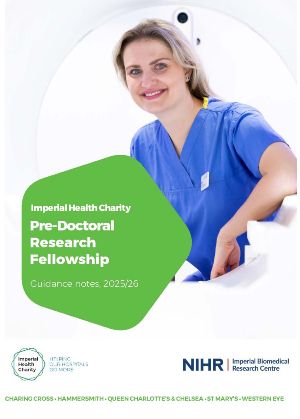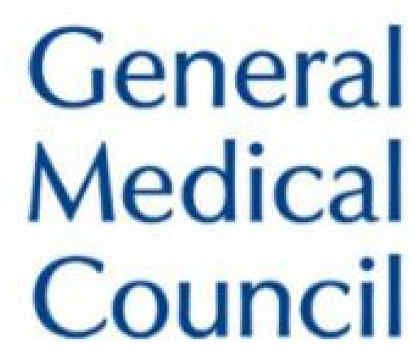As you progress through your clinical academic career, having access to the right resources is crucial for advancing both your research and professional development. Below, we’ve brought together a curated list of useful websites and tools to support you at every stage, whether you're seeking funding opportunities, fostering collaborations, or refining your academic portfolio. Explore these resources and see how they can help shape and enhance your career.
Useful resources
- Personal support resources
- Research tools and advice
- Research training opportunities
- Clinical & academic training contacts and resources (medical)
- Funders
- Interview Preparation
- Trainee led research networks
Occasionally, medical trainees may have issues or concerns that are outside the role and expertise of their supervisor or mentor. Under these circumstances, trainees might consider making use of various support services provided by Imperial College London.
Advice and counselling for staff
- All College staff and members of their family living with them can get free, confidential professional help from Confidential Care, the College’s Employee Assistant Provider, 24 hours per day, by telephone 020 7937 6224, email info@cicwellbeing.com or via the Confidential Care website.
- Confidential Care’s helpline and web pages can provide information and advice on a wide range of work/life issues including financial and legal problems, consumer and citizens’ rights, and finding child and elderly care.
- You can also speak or arrange to meet with a qualified counsellor to talk through personal problems in complete confidence. Couples counselling is available for staff with relationship problems.
Occupational Health Service
The College Occupational Health Service provides services to protect health at work, assess and advise on fitness for work and to ensure that health issues are effectively managed.
Equality, diversity and inclusion
The Equality, diversity and inclusion centre is a dedicated team that works to support staff and make Imperial a better place to work by promoting equality, diversity and inclusion (EDI).
Neurodiversity support is available and covers a range of commonly co-occurring ‘conditions’ related to processing or cognitive differences including Dyslexia, Autism, ADHD, and more.
The Centre for Academic English specialise in STEMM communication, working with Imperial students and researchers to enhance their understanding of academic writing and speaking and to develop the linguistic tools necessary to communicate their science more effectively.
Harassment support contacts
Confidential support is available for staff affected by bullying or harassment in the workplace through Imperial’s Harassment Support Contacts. The network of Harassment Support Contacts are trained volunteers who can help members of staff by acting as a listening board and exploring options available to them through formal and informal College procedures. Harassment Support Contacts keep all discussions confidential.
Workplace stress
Guidance for those affected by workplace stress can be found on Imperial's resilience and stress web pages.
Clinical academics from all healthcare professions may find the resources listed here useful when starting out in research.
Clinical Research Training Framework
The Imperial College Academic Health Science Centre has developed the Clinical Research Training Framework to define and develop the skills that an academic clinician of any professional background requires in order to support clinical research.
The Framework supports clinical staff in the AHSC organisations to develop a detailed understanding of research, and research skills, to allow them to become more directly involved in the mission of the AHSC: to accelerate the translation of research discoveries into improvements in human health. The Framework will facilitate staff to support National Institute for Health and Care Research (NIHR) and industry trials, or develop their own clinical academic careers by proposing competencies, skills and training and suggesting opportunities and resources offered within the AHSC (and beyond). Find out more here
Building a research career
Find out more about what health and care research is and how you can develop your research knowledge and skills.
Healer research toolkit
This toolkit is intended to help librarians in the health sector to carry out research from small-scale, local service evaluation through to much more formal research. The toolkit is intended as a starting point for those wishing to undertake a research project, highlighting issues to consider and signposting resources to help you get started - http://researchflowchart.pbworks.com/w/page/6839792/Welcome-and-Acknowledgements.
Research Support Service
The NIHR funds the Research Support Service to provide design and methodological support to health and social care researchers across England to develop grant applications to the NIHR and other national peer-reviewed funding programmes. Find out more information.
PERC: Imperial Patient Experience and Research Centre
The Patient Experience Research Centre (PERC) is a multidisciplinary group of clinicians, public health specialists and social scientists combining strengths in quantitative and qualitative research methods. PERC aims to promote active communication between patients, researchers and clinical staff to address real problems, and through this improve the quality of healthcare and the impact of translational research.
Please visit the PERC website for details on Public Patient Involvement/Engagement (PPI/E) training sessions and information on how PERC can advise and support your research.
Building a research career
Find out more about what health and care research is and how you can develop your research knowledge and skills.
Healer research toolkit
This toolkit is intended to help librarians in the health sector to carry out research from small-scale, local service evaluation through to much more formal research. The toolkit is intended as a starting point for those wishing to undertake a research project, highlighting issues to consider and signposting resources to help you get started - http://researchflowchart.pbworks.com/w/page/6839792/Welcome-and-Acknowledgements.
Health Research Authority (HRA)
The HRA website provides useful information about planning research, ethics applications and runs research approvals. Visit the HRA website to find out more.
Navigating digital health information website
This guide was created to make learning about data and AI in healthcare accessible and easy for everyone. With content developed in collaboration with the public and experts, the guide offers flexible learning options, including podcasts, videos, and examples. It’s designed for people at any knowledge level to learn at their own pace, helping them understand the role of data and AI in healthcare. The guide aims to empower individuals to make informed decisions, engage in conversations, and participate in shaping the future of healthcare. Visit the website.
- Statistical Advisory Service (SAS) - Imperial College London SAS provides various statistical training courses for clinical academic researchers, all approved by the Royal College of Physicians for CPD points. The courses cover introductory-level content and focus on different programs, including STATA, SPSS, R, and MATLAB. For more information and fees, visit the SAS website.
- NIHR Associate Principle Investigator (PI) Scheme: https://www.nihr.ac.uk/health-and-care-professionals/training/associate-principal-investigator-scheme.htm
- NIHR eLearning courses, visit https://learn.nihr.ac.uk : Good clinical practice, fundamentals of clinical research delivery, informed consent, future of health etc.
- Research in Practice programme and other eLearning courses available from the Royal College of Physicians, visit www.rcplondon.ac.uk
- The Medical Research Council eLearning courses, visit https://bygsystems.net/mrcrsc-lms/
- Nature eLearning courses (free and for variable cost via employing institution) including research integrity & publication ethics persuasive grant writing, publishing a research paper. https://masterclasses.nature.com
- University courses eg novel clinical trial design Cambridge (https://advanceonline.cam.ac.uk/courses/); introduction to RCTs from Birmingham (https://www.birmingham.ac.uk/university/colleges/mds/cpd/), Imperial College Courses for NHS staff: https://www.imperial.ac.uk/courses-for-nhs-staff/
Medical trainees may find the following resources below helpful in supporting their clinical and academic training:
PGMDE Support Portal
This platform is provided by NHS England (NHSE) to support Postgraduate Deans of Medical Education (PGDME) and other stakeholders involved in medical education, recruitment and training. This support portal gives answers to FAQs and query submission for trainees, trainers and Trusts in the HEE London and KSS regions.
The Gold Guide
The Gold Guide is a reference guide for postgraduate specialty training in the UK.
NIHR IAT Guide
This guide outlines the arrangements for the National Institute for Health Research (NIHR) Integrated Academic Training (IAT) Programme in England.
CATCH Clinical Academic Training & Careers Hub
This website offers information about clinical academic careers across healthcare disciplines in the UK. It provides guidance on career options, advice on pursuing these pathways, and features inspiring examples of professionals at different stages.
The following organisations may offer funding to support research activities/posts/projects for medical professionals:
The Medical Research Council (MRC) has developed videos to help fellowship candidates prepare their applications and get ready to face the panel. There are two Insight Videos: ‘How to win funds and influence panels’ and ‘Interview day: Mock interview for a Clinical Research Training Fellowship’
- Anaesthesia: Research and Audit Federation of Trainees (RAFT). www.raftrainees.org
- Emergency medicine: Trainee Emergency Medicine Research Network (TERN). www.ternresearch.co.uk
- ENT: UK ENT Trainee Research Network (INTEGRATE). www.entintegrate.co.uk
- GP: No trainee-specific research network, national research networks: Society for Academic Primary Care (SAPC) and Primary Care Academic Collaborative (PACT). www.sapc.ac.uk; www.gppact.org
- Geriatrics: Geriatric Medicine Research Collaborative (GeMRC). www.gemresearchuk.com
- Haematology: Haematology Specialty Training Audit and Research (HaemSTAR). www.haemstar.org
- Histopathology:Pathsoc Research Trainee Initiative (PARTI). www.pathsoc.org/parti.aspx
- Intensive care: Trainee Research in Intensive Care Network (TRIC). www.tricnetwork.co.uk
- Internal medicine: www.rcp.ac.uk/trainee-research-collaboratives
- Nephrology: Renal Trainee Network (NEPHwork). www.ukkidney.org/audit-research/projects/nephwork
- Neurosurgery: Neurosurgical Trainee Research Collaborative (BNTRC). www.bntrc.org.uk
- O+G: UK Audit and Research Collaborative in O&G (UKAROG). www.ukarcog.org
- Oncology: The National Oncology Trainee Collaborative for Healthcare Research (NOTCH). www.uknotch.com and Breast Cancer Trainee Research Collaborative Group (BCTRCG). https://bctrcguk.wixsite.com/bctrcg
- Paediatrics: RCPCH Trainee Research Network. www.rcpch.ac.uk/resources/rcpch-trainee-research-network
- Paediatric surgery: Paediatric Surgical Trainees Research Network (PSTRN). www.pstrnuk.org
- Pain medicine: Network of Pain Trainees Interested in Research & Audit (PAIN-TRAIN). www.paintrainuk.com
- Palliative care: UK Palliative Care Trainee Research Collaborative (UKPRC). www.twitter.com/uk_prc
- Plastic surgery: Reconstructive Surgery Trials Network (RSTN). www.reconstructivesurgerytrials.net/trainees/
- Pre-hospital medicine: Pre-Hospital Trainee Operated Research Network (PHOTON). www.facebook.com/PHOTONPHEM
- Radiology: Radiology Academic Network for Trainees (RADIANT). www.radiantuk.com
- Respiratory: Integrated Respiratory Research collaborative (INSPIRE). www.inspirerespiratory.co.uk
- Urology: British Urology Researchers in Surgical Training (BURST). www.bursturology.com
- Vascular surgery: Vascular & Endovascular Research Network (VERN). www.vascular-research.net
Useful links
Contact us
The CATO Team and Radiographers Incubator work on a Hybrid model, combining days in the office with days working from home – the best way to reach us is by email.
cato@imperial.ac.uk
radresearch@imperial.ac.uk
+44 (0)20 3313 7397



